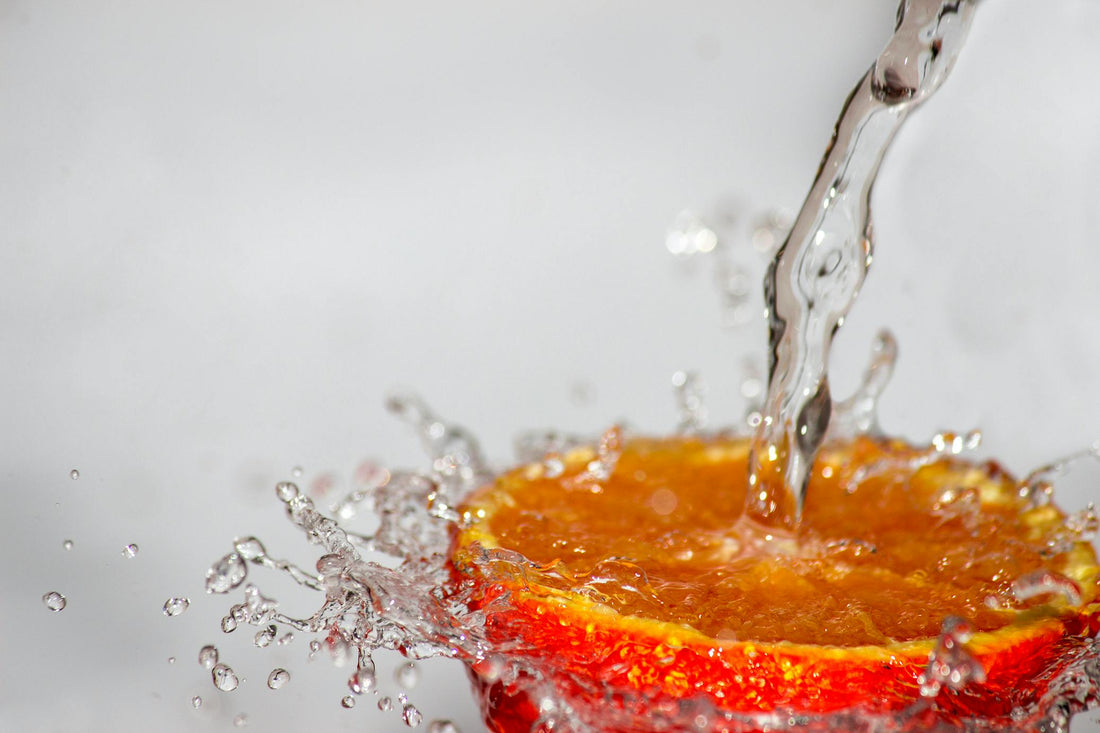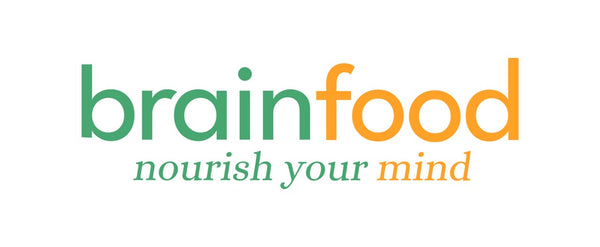
Feel-Good Fuel: Best Natural Energy Drinks
Share
The Best Natural Drinks for Energy: What Does "Natural" Even Mean?
Let’s be honest—At some point, you (or someone you know) has crushed a Red Bull at 9 p.m. and hoped for the best. Maybe in high school/college when you were juggling multiple subjects, clubs, or a part-time job. We’ve all been there. But now? In 2025, our social media feeds are flooded with “healthy alternatives” in every category. Instead, everyone’s sipping something “natural”… or at least claiming to.

But what does natural energy even mean? It can get confusing - especially when drinks claim to be "natural" but are still packed with caffeine. (At that point, how is it any different from a Red Bull?) In terms of energy, technically caffeine isn't giving you natural energy. It is, more or less, hacking your body to keep you from feeling tired... not necessarily a bad thing, but not always what you want (learn more about caffeine here).
→ Some brands say "natural energy" because the caffeine comes from tea or plants. Others say it's "natural energy" because of vitamins, minerals, or nootropics.
→ The problem? It’s all bundled together under the same buzzword—even though they work very differently.
At BrainFood, it’s about supporting what your brain and body already do best, without sending you into overdrive. So let’s break it all down—and find out what makes a truly natural energy drink worth drinking.
Defining Natural Energy
Not all energy-boosting drinks are created equal—and "natural" can mean different things in this context. Let's break them into two main types:
- Drinks that contain caffeine from natural sources
- Drinks that help support your body's own energy production
You might be surprised to hear that even sugar is a natural energy source (yep—here’s an article from the National Library of Medicine on how sugar fuels your brain). But for long-term, balanced energy, we’re going to focus on drinks that don’t spike your blood sugar and leave you crashing out.
Type 1: Natural Energy via Natural Caffeine
Caffeine is obviously one of the most well-known natural stimulants, and it works by blocking sleep signals in your brain. The Sleep Foundation notes that this sleep signal is actually a chemical called adenosine. Instead of making you more energetic, caffeine tricks your brain into feeling less tired.

Sounds a little sketchy, but in moderation (and when timed well—ideally no caffeine within 8 hours of bedtime), caffeine has no proven negative long-term effects for most healthy adults.
What makes caffeine "natural"?
Natural caffeine comes from plant-based sources rather than being synthetically produced. From a Food Insight article: "Found in more than 60 species of plants across the globe, caffeine comes from the seeds of coffee beans, cacao beans and Kola nuts; the leaves and buds of tea; the leaves of Yerba mate; and in the bark of Yoco." Here are some specific examples:
- Yerba Mate - A South American tea packed with antioxidants
- Matcha - Powdered green tea with a calmer, longer-lasting caffeine hit
- Green coffee bean extract - An unroasted coffee source with natural antioxidants
Great Brands for Natural Caffeine Drinks:
Type 2: Natural Energy by Supporting Your Body's Own System
For natural energy drinks that do not contain caffeine, you're nourishing your body’s energy foundation instead of spiking your system.
Key vitamins and nutrients that play a role in energy production:
- Vitamin B12 - Helps convert food into cellular energy
- Vitamin D - Supports mitochondrial function, mood regulation, and protects cells (by reducing inflammation)
- CoQ10 - Helps turn carbs and fats into energy your body can use
- Magnesium - Supports muscle and nerve function
- Fiber & complex carbs - Stabilize blood sugar
- Zinc - Supports metabolism, memory, and immunity
The effectiveness varies depending on age, health status, and even genetics.
To give a little perspective, let's take B vitamins as one example. Although B vitamins alone don't always contribute to the energy boosts associated with common energy drinks, B vitamins (eight in total) help metabolize the food you eat into energy. Some even consider B12 shots as the best natural energy drink.
Do we agree? Well, it depends. If you are lacking B12 (which is especially common in vegans and vegetarians), a B12 can aid with fatigue as fast as caffeine. For others, just one shot of that may or may not make a difference. Sometimes you need other vitamins, too.
Remember, if you’re saturated and get enough B vitamins as it is, don't expect to feel crazy hyped with this approach. On the other hand, if you don't get enough of the vitamin, it will certainly help give you energy and reduce fatigue.
What About Adaptogens?
Adaptogens are natural substances (usually herbs) that help your body resist stress and restore balance. As UCLA Health experts put it, "adaptogens interact with the hypothalamic-pituitary-adrenal (HPA) axis, which initiates your body’s stress response and plays a big role in keeping your body in balance." They aren't essential like vitamins, but when taken consistently, they can help with sustained energy and mental clarity.

Common adaptogens:
- Rhodiola Rosea - May help improve stamina and reduce fatigue
- Ashwagandha - Helps manage stress, which can indirectly improve energy
- Cordyceps - A fungus often used for endurance and stamina
Note: As people have different sensitivity levels, adaptogens usually need to be taken regularly for noticeable results.
Great Brands for Non-Caffeinated Energy Support:
- BrainFood (with B12, Vitamin D, and CoQ10)
- Elements of Balance (Adaptogen-focused tonics)
So, What's the Best Natural Energy Drink?
That depends on what your body needs. Ask yourself:
- Do you have a tight deadline that requires some late-night grunt work? Go for a natural caffeine source.
- Are you caffeine-sensitive, or looking for long-term energy stability? Reach for something vitamin-rich or adaptogen-based.
Our General Advice:
- Choose drinks with low sugar to avoid crashes
- Avoid artificial flavors and preservatives when possible
- Choose what makes you feel good--and enjoy the ritual!
Frequently Asked Questions
What does "natural energy" actually mean?
Natural energy typically refers to either caffeine sourced from plants (like tea or coffee) or drinks that help your body produce energy naturally using nutrients like B12, CoQ10, or Vitamin D.
Is caffeine still considered natural?
Yes‚ if it's derived from plant sources like yerba mate, matcha, or green coffee beans. Synthetic caffeine, made in labs, is common in many mainstream energy drinks and doesn't fall under the same "natural" label.
How does caffeine give you energy?
Caffeine doesn't actually give you energy. It blocks the neurotransmitter adenosine, which tells your brain you're tired. So you feel more awake, even if your energy levels haven't changed.
When should I stop drinking caffeine to protect my sleep?
To avoid disrupting your sleep, it's best to stop drinking caffeine about 6-8 hours before bedtime.
How do vitamin-based energy drinks work?
They support your body's ability to convert food into energy at the cellular level. Key ingredients include B vitamins, CoQ10, magnesium, and more.
What are adaptogens and how do they help with energy?
Adaptogens are natural herbs or fungi that help the body adapt to stress. They don't give an instant buzz but may reduce fatigue and boost stamina over time.
What ingredients should I avoid in energy drinks?
High sugar, synthetic caffeine, artificial sweeteners, preservatives, and dyes. These can all lead to crashes or unwanted side effects.
